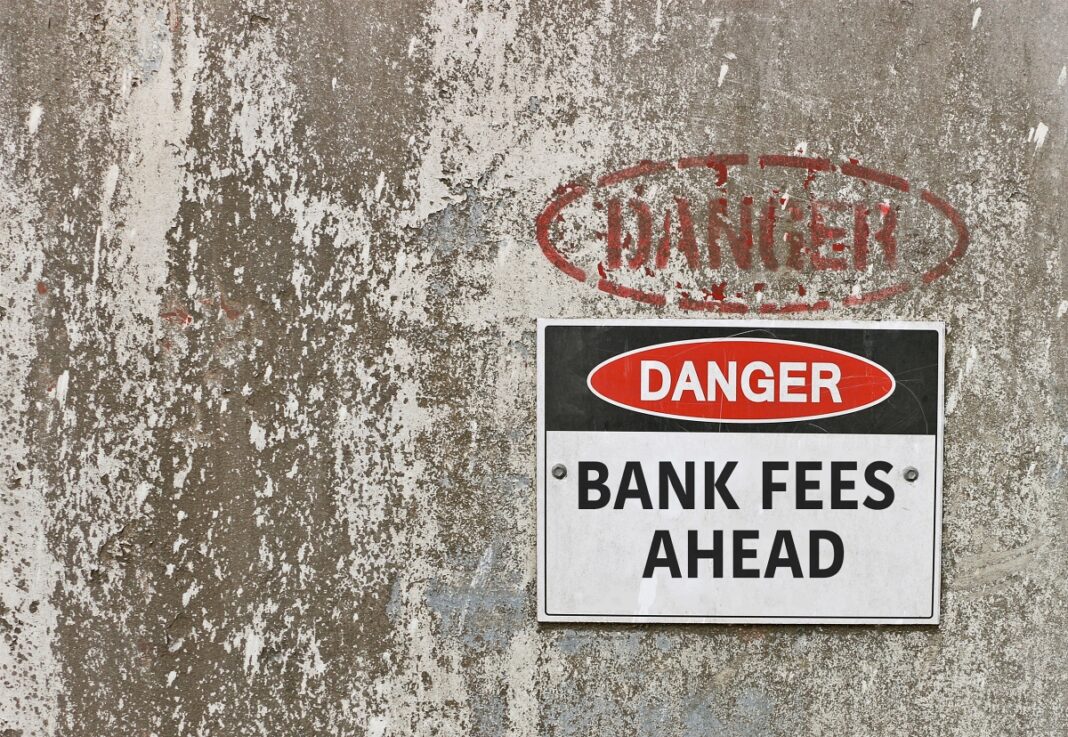There has been outrage recently about the excessively high level of bank profits in New Zealand.
The average Kiwi possibly wouldn’t be so perturbed if the main banks were New Zealand-owned. Personally I’ve never been particularly discerning when unearthing the country of origin of my assailant when I’ve been mugged or scammed – whether it be a neighbour, or a total stranger from another town – if they steal my hard-earned money I feel violated, irrespective of their provenance.
Not that I’m suggesting there’s any ‘mugging’ or ‘scamming’ taking place in the banking sector – perish the thought!
It’s just there’s always a feeling that your money’s being ‘taken’, you get no say in it, the amounts change regularly, the scammers are all in on the fix, they change the rules constantly whenever ‘they’ decide, you can’t get out of the game and you’re completely *****d without them.
Sound familiar? Welcome to the world of New Zealand banking (any similarities to mafia protection rackets are purely coincidental).
“I’m gonna make him an offer he can’t refuse.”
What Marlon Brando’s character Vito Corleone is really saying to Johnny Fontaine in The Godfather is what I like to term ‘bank talk’: you can’t say ‘no, cos we won’t let you.
Our free-market rules prescribe the players are not allowed to collude – no discussing and agreeing things like rates and margins with competitors – that’s a ‘no no.’
But the day bank W changes its one-year mortgage rate, purely by coincidence its competitor banks A and A and B choose to change their rates by virtually the exact same amount. Strange eh?
Of course you can always change banks … yeah, right! … have you ever tried changing banks? Be very afraid.
“We’re here to help,” never really seems to ring true until you add the postscript, “provided you’ve got security by way of property as collateral that we will insist you back-up with a personal guarantee.”
I’m not keen on the business model that enables the ‘family’ to invent random new charges with indecipherable names like ‘processing validation fee’ and ‘batch transaction fee’, that are added to customer statements every month or two; if the clients object and don’t pay on time, cumulative penalties are then also added.
It is of no real consolation that there is a helpline with a minimum two-hour ‘priority’ queue to sooth clients by assuring them there is, “absolutely nothing we can do about the new charges”, but then politely ask, “is there anything else I can help you with today [other than the first thing which I didn’t help you with]?”
It can be disconcerting to realise there is no longer a local manager to speak to, because there is no longer a local branch and the advice is to check the FAQ section on the website or wait on hold for a couple of hours and speak to the helpdesk gentleman in Mumbai (who coincidentally sounds just like the Microsoft guy who called me yesterday to check my credit card details).
A year ago I had a rant about banks in this column. I commented, “no-one works at the bank anymore since they went online.”
Which led me to ask: “If they no longer have to pay the bank teller wages, and they don’t need the armed courier driver (cos cash is now extinct, except for buying sausages at Bunnings on the weekend), and they don’t have to rent the retail space for the closed bank branch, and they’ve eliminated the accompanying cost of providing customer carparks and re-stocking the pens on chains that don’t work, then why have they not only not reduced my bank charges, but instead introduced additional new transaction charges for the jobs now done by less than minimum wage logarithms at the back end of their online banking app? … [breathe]
The reason my bank has not reduced my bank charges: “because they don’t have to.”
As I said a year ago, “there’s a lot of extra profit going straight to Melbourne, not passing go, but still collecting $200, even though they already own Park Lane and Mayfair.”
It reminds me of a boardgame – I wish I could remember the name.
Related: 2023: When will it be over please?
















